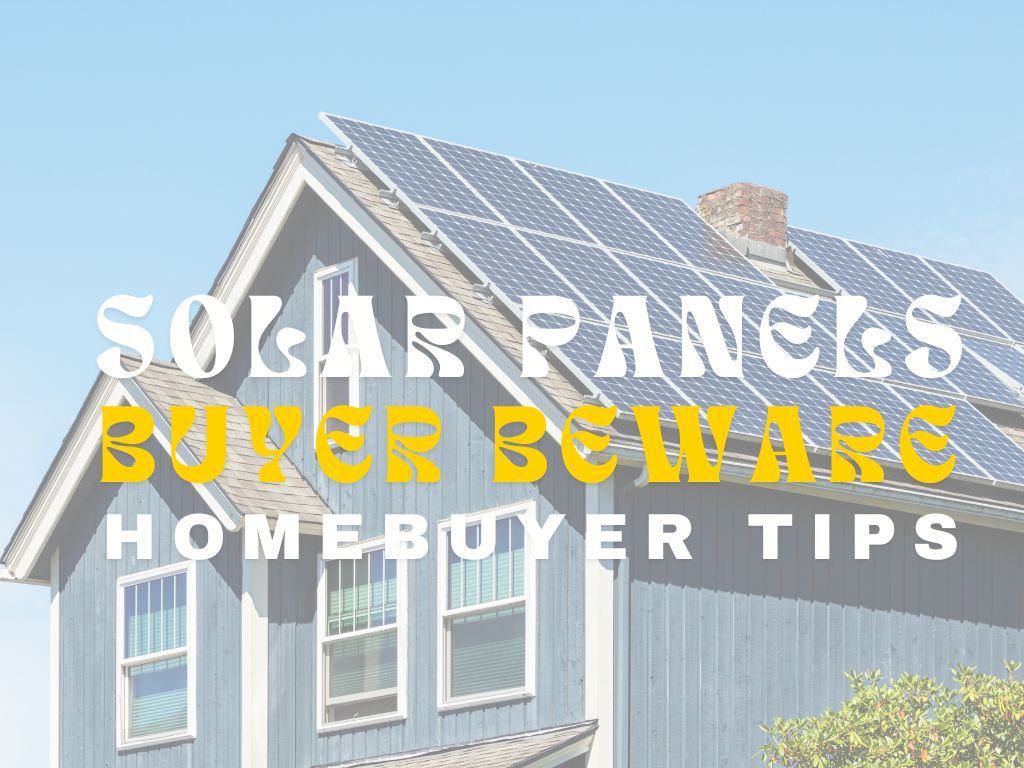Are you considering purchasing a home that comes equipped with solar panels? It’s a wise decision, both for the environment and your long-term energy savings. However, before you take the plunge, it’s essential to ask some critical questions to ensure that you’re making a well-informed decision. In this blog post, we’ll outline each question a buyer should ask and provide detailed information about why each question is important.
- Does the seller own or lease solar panels?
- Why it matters: Ownership or leasing status can significantly impact your responsibilities and future savings.
- How much does the seller owe?
- Why it matters: Understanding the outstanding balance helps you evaluate the financial aspect of the solar panel system.
- Can the seller provide a copy of the financing agreement or lease, including contact information?
- Why it matters: Having access to the agreement and contact information ensures transparency and provides a point of reference in case issues arise.
- Can the lease be paid in full at closing?
- Why it matters: Paying off the lease can simplify the transaction and eliminate future financial obligations.
- Can the buyer assume the balance of the loan?
- Why it matters: Assuming the loan may offer you favorable terms and make the transition smoother.
- Are there any warranties for the panels? If yes, can the seller provide a copy?
- Why it matters: Warranty coverage is essential for long-term protection against potential system issues.
- How old is the system?
- Why it matters: The age of the system can affect its efficiency and potential maintenance needs.
- Are the panels and system working properly?
- Why it matters: Ensuring the system’s functionality is crucial for maximizing energy savings.
- Who maintains the system?
- Why it matters: Knowing who is responsible for maintenance can prevent misunderstandings and ensure the system’s longevity.
- Does the seller have a permit for the solar panels?
- Why it matters: Proper permits indicate that the installation adheres to local regulations and safety standards.
- Can the seller provide a year’s worth of utility bills?
- Why it matters: Utility bills reveal the actual energy savings and can help you gauge the system’s performance.
- Does the seller have a net metering plan with a utility company? If so, is the net metering plan grandfathered?
- Why it matters: Net metering can significantly impact your energy costs and savings, and understanding its status is essential.
Tip: If the seller owes money for solar panels, there should be a Uniform Commercial Code (UCC) filing with the Rhode Island Secretary of State’s Office since solar panels are typically treated as personal property. Check the UCC Public Search: RI Business Portal for added peace of mind.
Pros: Purchasing a home with solar panels offers several enticing advantages. Firstly, you’ll enjoy reduced energy bills, as solar panels harness the power of the sun to generate electricity, significantly lowering your reliance on traditional utility sources. This translates to long-term cost savings and a reduced carbon footprint, aligning with your environmentally conscious values. Solar panels also increase your home’s resale value, making it a more attractive investment. Moreover, you’ll likely qualify for various tax incentives and rebates, further enhancing your financial benefits. Lastly, solar panels often come with warranties, providing peace of mind regarding maintenance and potential repairs.
Cons: While there are numerous benefits to buying a solar-powered home, it’s essential to consider the potential drawbacks. The initial installation cost of solar panels can be substantial, although this expense is often offset by long-term savings. Additionally, the effectiveness of solar panels can be impacted by factors such as weather conditions and shading, potentially affecting energy production. The condition and age of the solar panel system also play a role in its efficiency, potentially necessitating costly upgrades or replacements. Furthermore, the financing arrangements, whether ownership or lease, may have associated complexities and obligations that require careful consideration. Lastly, some buyers might find the appearance of solar panels on the roof less appealing, though this is subjective and depends on personal preferences.
As a passionate Realtor, I understand the importance of these questions for your real estate journey. When it comes to making informed decisions, asking these questions ensures you’re not just buying a house but also securing your investment in a sustainable future. Feel free to reach out to me if you have any more questions or need further guidance on purchasing a home with solar panels. Your satisfaction and peace of mind are my top priorities.



